IntelliJ IDEA provides standard templates for surrounding code fragments with various constructs based on the language of the source code. This includes if...else conditional statements, do...while andfor loops, combinations of try...catch...finally, XML tags, folding regions, and other constructs.
Surround a code block with language constructs
Select the desired code fragment.
On the menu, click Ctrl+Alt+T.
Select the necessary surround statement from the list.
You can edit code templates that are used in the surround statements. In the Settings/Preferences dialog Ctrl+Alt+S, go to .
For example, you can configure final modifier, name or even a type of the exception for the try...catch conditional statement.

This feature applies to the following languages (contexts):
| Context | Surround with | Example |
|---|---|---|
| Java statements |
| 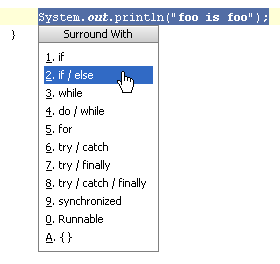 |
| Java expressions |
| 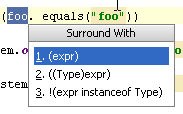 |
| XML/HTML/JSP/JSPX tags |
| 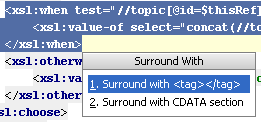 |
| JavaScript statements |
| 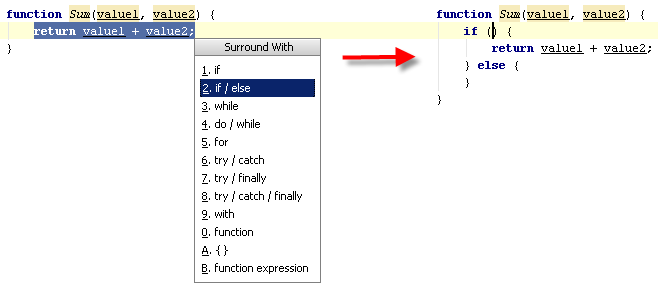 |
| PHP statements |
| 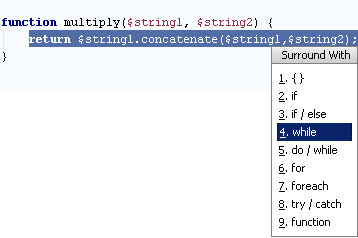 |
| Custom folding region comments | Any fragment of code, where Surround With is applicable | 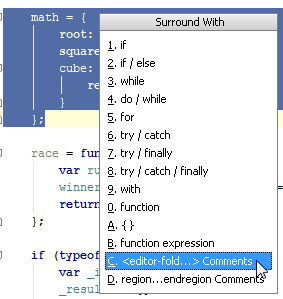 |


No comments:
Post a Comment